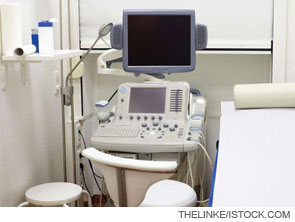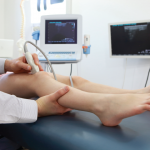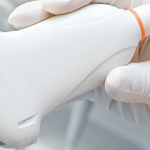Ongoing training can be hard to find. One of the best ways may be to find a physician in the area to act as a mentor. Unfortunately, there is no organized service to “match” mentors, so getting one is up to the individual physician.
Unlike some types of imaging studies, ultrasound requires no additional training for staff. Indeed, Dr. Samuels discourages anyone other than the healthcare provider performing the studies.
“This is different from getting a carotid Doppler where very specific protocols can be followed by a technician,” he says. “We are using this machine almost like a stethoscope with many different nuances and angles involved. This is not a field where we can have a technician get all of the right views while the physician is off somewhere else.”
However, many practices will find having staff members trained on the some of the basics may be advantageous. There are times when having another set of hands to hold the transducer while the physician is inserting a needle or to help label and save the studies would speed up the procedure. This can be accomplished quickly and inexpensively internal to the practice.
Physician Time Concerns
Finding the time to train in busy practices is another variable that must be considered when deciding if offering US is good for the practice. While it can be time consuming during the first few months, it becomes faster as the rheumatologist gets more experience.
“For an experienced operator, a study may take only five to 10 minutes,” says Dr. Kissin. “Most rheumatologists need US for only two in 10 patients. This means getting ultrasound studies would add 10 to 20 minutes per half day, very doable for most doctors.”

Credentialing
Currently there is no established group involved with credentialing rheumatologists in the use of US within the specialty. However, the ACR has constituted a task force to explore this issue (see “ACR Responds to Members’ Questions About Ultrasound Use” sidebar, p. 56). It will be issuing a report this fall.
This lack of certification can lead to some confusion in reimbursement for the procedure. Some insurers will not pay for ultrasound procedures unless a radiologist reads them. In many states in the Northeast, Medicare requires some documentation of training prior to approving a claim. However, the amount of training and types of documentation required is, in Dr. Kissin’s phrase, “somewhat nebulous.” Another complication is that reimbursement policy for ultrasound changes frequently, adding to the confusion.



